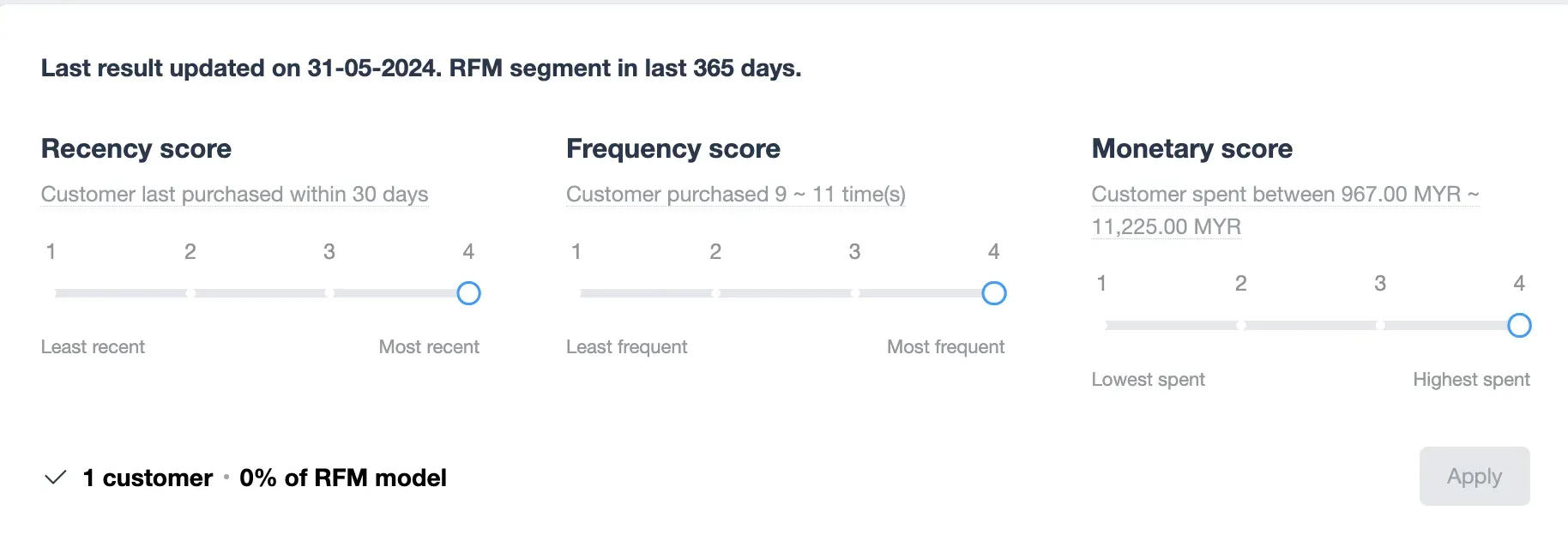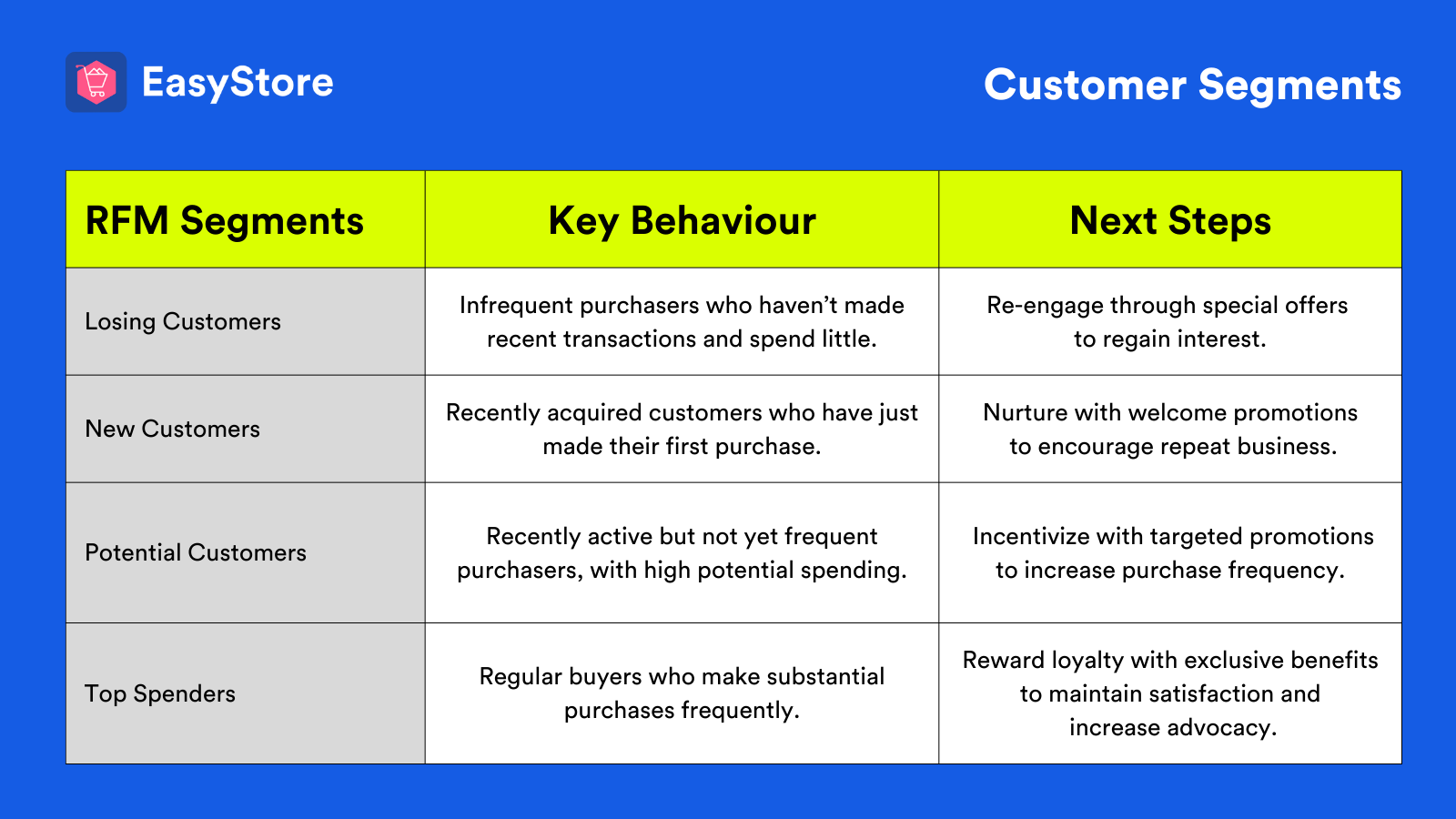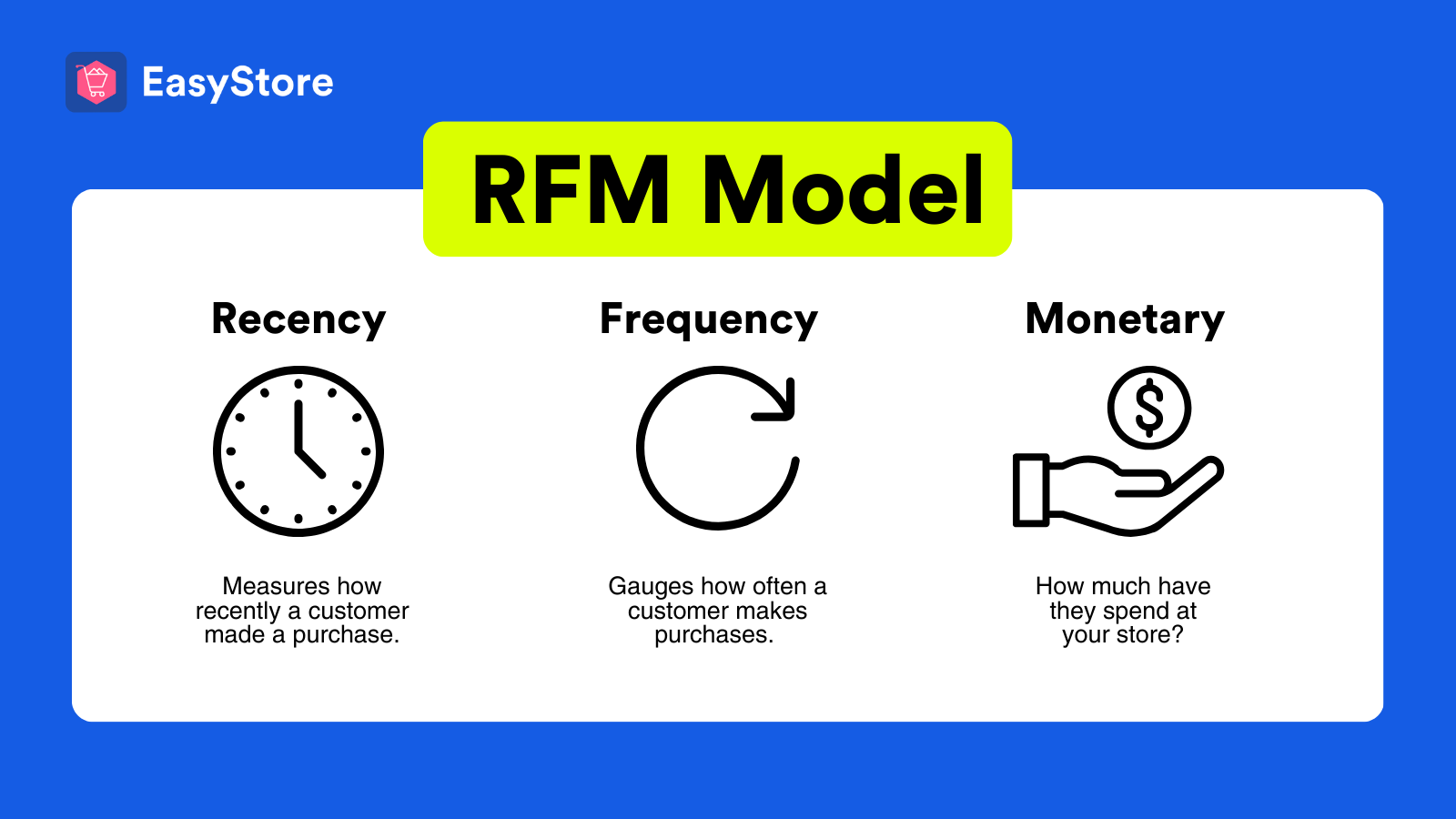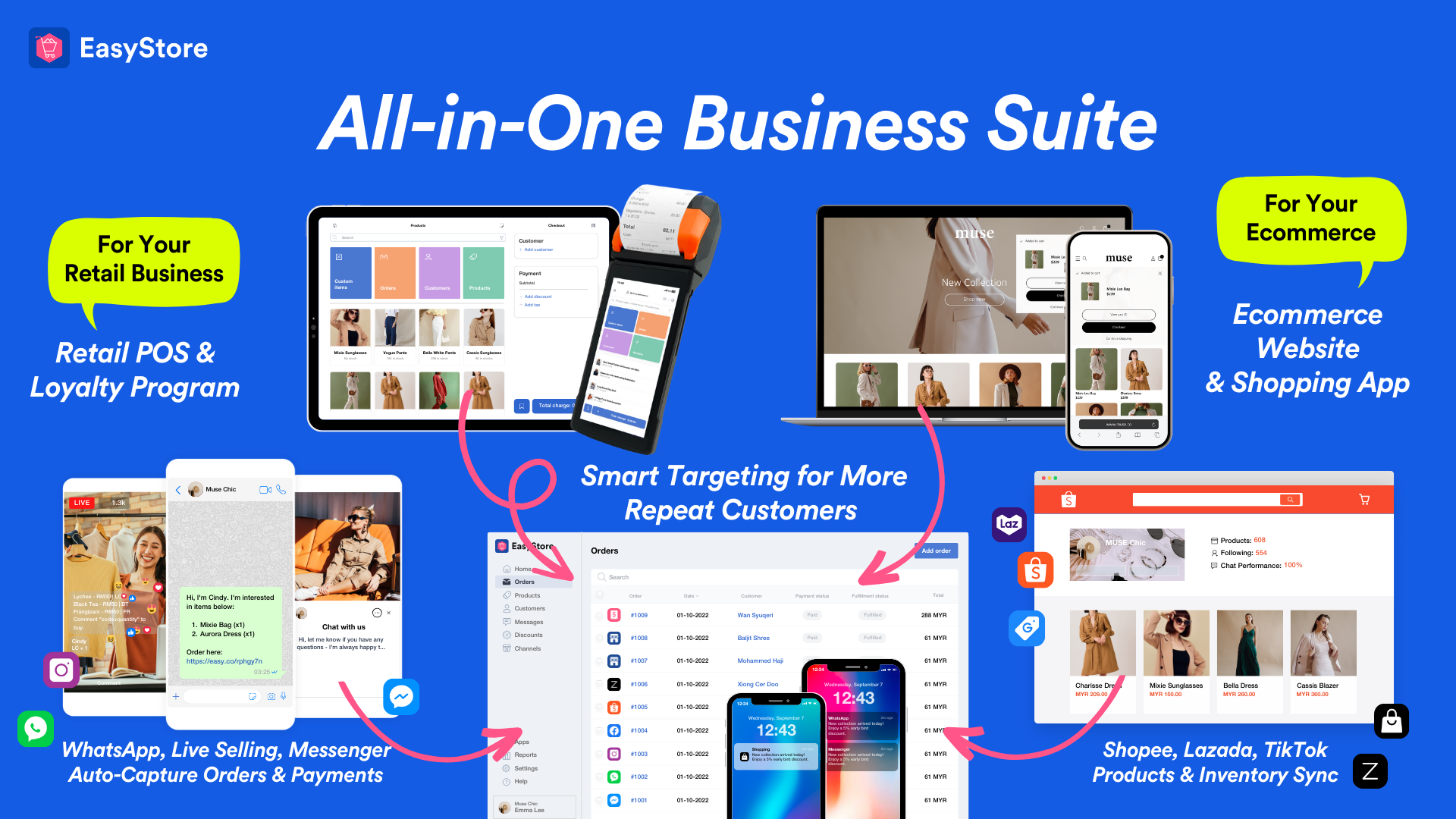RFM Analysis: Choosing Your Ideal Customers
By Kelie Wong · 30th July, 2024

Consider your top five customers.
What actions have they taken to earn this distinction?
- Is it because they have recently made purchases?
- Is it because they consistently return to buy from you?
- Is it because they typically spend a significant amount?
As business owners, a deeper question to reflect on is how we determine which customers are the best and how this impacts the amount of time and resources we choose to invest in them.
One of the most effective and straightforward methods to predict and understand customer behavior is RFM Analysis, pioneered by Hughes in 1994 and still widely utilized today.
RFM Analysis (Recency, Frequency, Monetary)
The primary objective of the RFM (Recency, Frequency, Monetary) model is to identify and categorize customers based on their behavior across three key metrics:
- Recency: This measures how recently a customer has made a purchase. Customers who have made a purchase more recently are often more engaged and likely to make repeat purchases.
- Frequency: This metric gauges how often a customer makes purchases. Customers who purchase frequently are more likely to be loyal and contribute consistently to revenue.
- Monetary: This assesses the amount of money a customer spends. Customers who spend more represent higher value to the business and contribute more significantly to revenue.
Identifying and Prioritizing Key Customers
EasyStore’s Segment Tool utilizes the RFM Model, assessing each metric on a scale of 1 to 4, with a higher score indicating greater significance in that metric.


Objective Of RFM
The ultimate objective of the RFM model is to segment customers into different groups based on these metrics in order to:
- Identify high-value customers: Those who score high on all three metrics (recent, frequent, and high monetary value) are typically considered the most valuable customers. They contribute significantly to revenue and are more likely to become loyal advocates for the brand.
- Tailor marketing strategies: By understanding where each customer falls in terms of recency, frequency, and monetary value, businesses can develop targeted marketing strategies.
- Optimize resource allocation: By prioritizing efforts on high-value segments identified through RFM analysis, businesses can allocate resources more effectively. This includes investment in customer retention programs, personalized marketing campaigns, and enhancing overall customer experience for those who contribute most to the business's bottom line.
By default, EasyStore empower merchants to segment customers into four predefined segments - Losing, New, Potential and Top Spenders, which you can use to strategise your next steps.

Alternatively, you can also create your custom tailored segments ensures precise targeting and effective resource allocation.
By focusing efforts on enhancing their experience and satisfaction, businesses can foster enduring customer loyalty and sustainable growth.
Ready to harness the power of RFM?
Begin by exploring EasyStore’s Segment Tool and start crafting targeted strategies that resonate with each segment. Click 'Create Segment' to unlock new opportunities and propel your business towards greater success.
Unified Commerce Solution
EasyStore is a unified commerce solution that unifies retail and ecommerce business.
Over 50,000 brands have grown their businesses by embracing unified customer experiences (UCX) strategy through EasyStore across multiple sales channels - online store, retail outlets, marketplaces, and social media, ensuring consistency in product and service offerings for a seamless shopping journey.
线上线下融合,UCX 客户体验为王
选择 EasyStore,意味着选择一个能让您的业务实现无缝整合、高效运作的可信赖合作伙伴。让我们共同开启您的多渠道经营之旅,探索更广阔的商业可能性。
欢迎联系我们,了解更多最新文章
-

May 2025 Product Updates
By Cavan Koh · 6th May, 2025
-

April 2025 Product Updates
By Cavan Koh · 14th Apr, 2025
-

March 2025 Product Updates
By Cavan Koh · 10th Mar, 2025
-

How These Retailers Use UCX to Prepare for Ramadan—and Keep Customers Coming Back
By Frost Chen, Poh Sook Yan · 3rd Mar, 2025
-

1,000 SMEs to Benefit: EasyStore and Partners Sign MoU to Empower Unified Customer Experience (UCX) for Retail and Ecommerce
By EasyStore Press · 27th Feb, 2025
-

Let Business Help Business Supports Over 1000 Local SMEs Across Malaysia
By Amirul Asraf · 16th Feb, 2025

